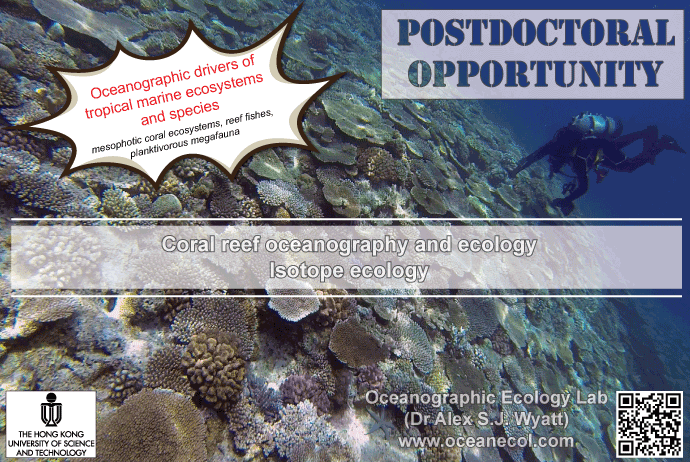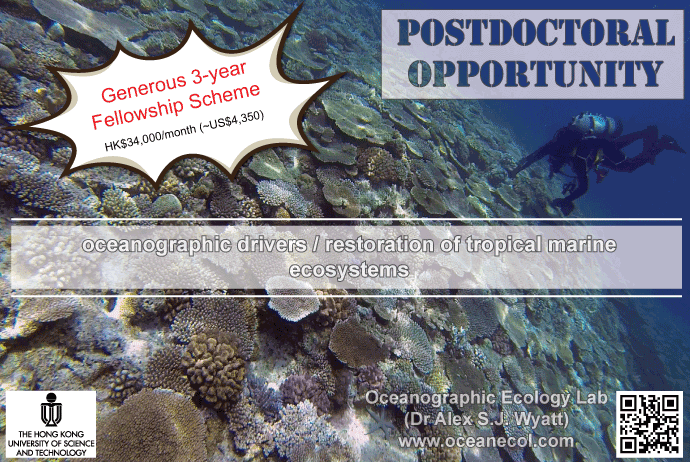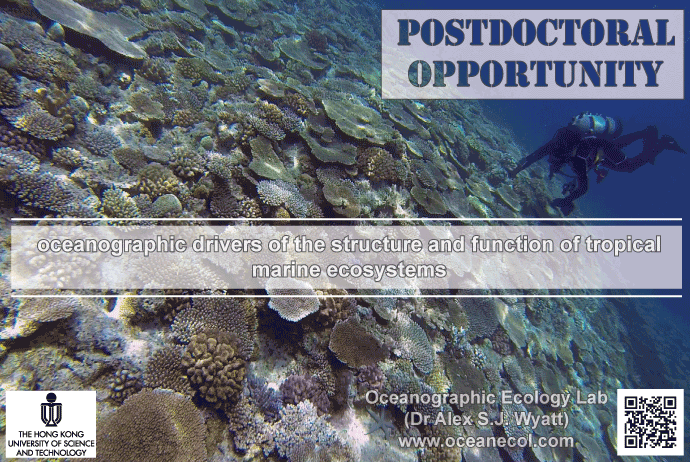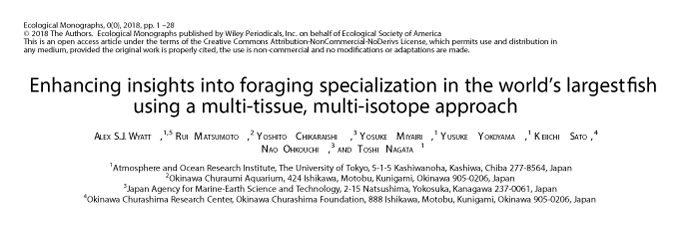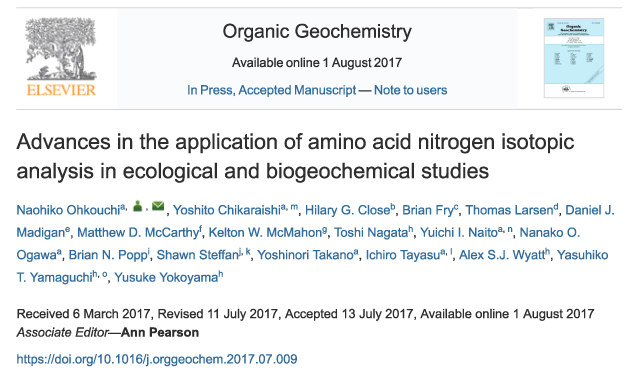
Grant success: RGC General Research Fund
Dr Wyatt has been awarded a General Research Fund (GRF) grant by the Research Grants Council (RGC) of Hong Kong to explore diet variations in valuable marine species using tissue isotope analyses. Title: Individual- and species-level feeding specialisations and resource dependencies of valuable marine species | Click for More →

